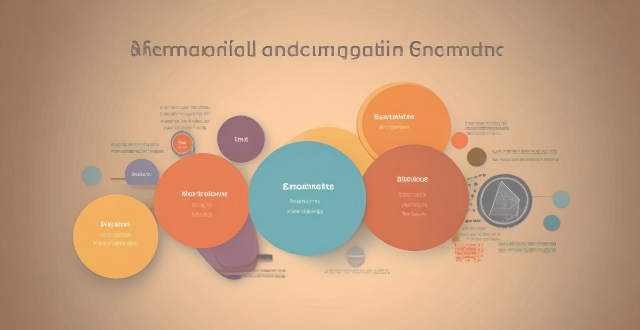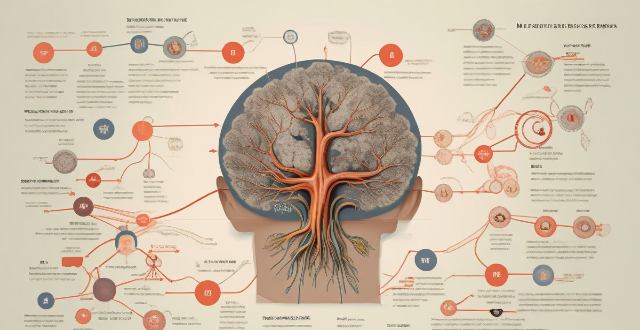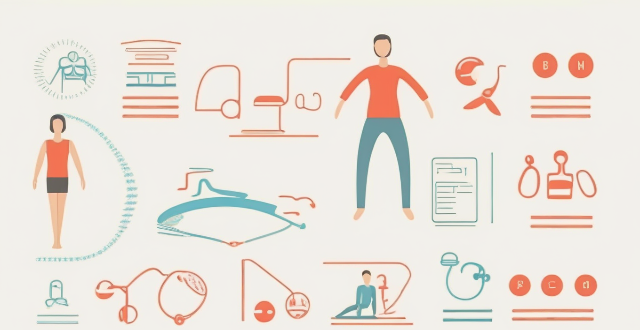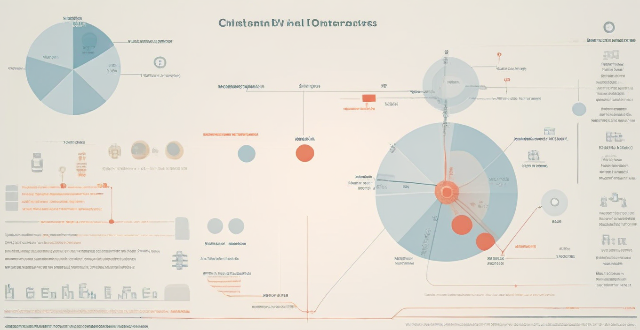Anxiety Information

How do celebrities deal with stress and anxiety in their daily life ?
Celebrities handle stress and anxiety through exercise, meditation, yoga, healthy eating, hobbies, social support, professional help, time management, limiting social media exposure, and self-care routines.

What advice would a psychologist give for someone with severe exam anxiety ?
Exam anxiety is a common issue that can impact performance. A psychologist offers advice on recognizing symptoms, identifying triggers, coping strategies (time management, study techniques, relaxation techniques, positive self-talk, seeking support), preparing for the exam day (sleep, healthy meal, arriving early), during the exam (reading instructions carefully, staying calm and confident, managing time wisely), and after the exam (reflecting on performance, taking care of yourself). By understanding exam anxiety and adopting effective strategies, individuals can overcome their fears and perform to the best of their abilities.

Can regular physical activity reduce anxiety levels ?
Regular physical activity can help reduce anxiety levels by improving mood, reducing stress hormones, promoting better sleep, increasing self-esteem and confidence, and providing social support. Engaging in at least 30 minutes of moderate-intensity exercise per day can significantly reduce anxiety symptoms.

How can I manage test anxiety effectively ?
Test anxiety is a common issue among students that can be managed effectively through various strategies. Recognizing symptoms, practicing mindfulness, seeking support, preparing early, and staying healthy are some ways to combat test anxiety. Additionally, visualizing success, using relaxation techniques, setting realistic goals, staying organized, pacing oneself, and focusing on one question at a time can help improve performance. After the test, review mistakes without judgment, reflect on performance, and celebrate efforts regardless of the outcome.

Can team sports help with social anxiety ?
Team sports can potentially help individuals with social anxiety by providing a supportive environment for exposure therapy, building confidence, offering positive reinforcement, distracting from self-consciousness, and developing social skills. However, professional guidance should be sought if social anxiety significantly impacts one's life.

How can I distinguish between normal nervousness and excessive test anxiety ?
Normal nervousness is a natural response to stress, while excessive test anxiety can have negative effects on performance and well-being. Signs of excess test anxiety include excessive worry, avoidance behavior, physical symptoms, negative self-talk, and behavioral changes. Seeking help from a trusted source can provide guidance and support to manage anxiety and improve performance.

Is there a way to completely eliminate test anxiety ?
Test anxiety is a common problem that affects many students. It can cause physical symptoms such as sweating, trembling, and rapid heartbeat, as well as mental symptoms such as difficulty concentrating and negative thoughts. While it may not be possible to completely eliminate test anxiety, there are several strategies that can help reduce its impact. Understanding Test Anxiety Test anxiety is the feeling of worry or fear that comes before or during an exam. It is a type of performance anxiety, which means it is related to how well you think you will do on the test. The more importance you place on the test, the more anxious you are likely to feel. Strategies for Reducing Test Anxiety Preparation is key to reducing test anxiety. Make sure you have studied thoroughly and understand the material. Create a study schedule and stick to it. This will help you feel more confident and prepared when the test day arrives. Positive thinking can also help reduce test anxiety. Try to replace negative thoughts with positive ones. For example, instead of thinking "I'm going to fail," try saying "I am prepared and I can do this." Visualize yourself succeeding on the test. Relaxation techniques such as deep breathing, meditation, or progressive muscle relaxation can help reduce anxiety. Practice these techniques regularly, not just on the day of the test. Time management is important for reducing test anxiety. Make sure you have enough time to complete the test. Don't wait until the last minute to start studying. Also, manage your time during the test by allocating a certain amount of time for each section. Maintaining a healthy lifestyle can also help reduce test anxiety. Get enough sleep, eat a balanced diet, and exercise regularly. Avoid caffeine and sugar, which can increase anxiety. If your test anxiety is severe, seek support from a counselor or therapist who specializes in anxiety disorders. They can provide additional coping strategies and treatments such as cognitive-behavioral therapy (CBT). Conclusion While it may not be possible to completely eliminate test anxiety, there are several strategies that can help reduce its impact. By understanding test anxiety, preparing thoroughly, practicing positive thinking and relaxation techniques, managing your time effectively, maintaining a healthy lifestyle, and seeking support if needed, you can minimize the effects of test anxiety and improve your performance on exams.

Is it normal to experience anxiety before an exam ?
Is it normal to experience anxiety before an exam? Yes, it is absolutely normal to experience anxiety before an exam. In fact, it's a common reaction that many students face. This feeling of unease or nervousness is often referred to as "test anxiety" or "exam stress." Let's delve into this topic further: Understanding Exam Anxiety Exam anxiety can manifest in various ways, such as physical symptoms like sweating, trembling hands, or a racing heartbeat. Mental symptoms like difficulty concentrating or thinking negatively about the exam are also common. Emotional symptoms like feeling overwhelmed or fearful may also occur. Why Does It Happen? Several factors can contribute to exam anxiety, including performance pressure, lack of preparation, past experiences, and perfectionism. Coping with Exam Anxiety There are several strategies to manage exam anxiety effectively, such as adequate preparation, relaxation techniques, positive self-talk, time management, and maintaining a healthy lifestyle. Seeking Support If your anxiety is severe or persistent, consider seeking support from tutoring, study groups, or professional help. Final Thoughts Remember, it's okay to feel anxious before an exam. Acknowledge your feelings without judgment and utilize the strategies mentioned above to manage your anxiety. With preparation and the right mindset, you can approach your exams with confidence and competence.

Are there any specific exercises for dealing with test anxiety ?
Managing Test Anxiety: Strategies for Success Test anxiety is a common issue faced by many students, especially during exams. It can have a negative impact on performance and overall well-being. However, there are specific exercises that can help in dealing with test anxiety. In this article, we will discuss some effective strategies for managing test anxiety. Mindfulness meditation is a powerful tool for reducing stress and anxiety. By focusing on the present moment and observing thoughts without judgment, you can learn to calm your mind and reduce feelings of anxiety. Deep breathing exercises can help to slow down your heart rate and relax your muscles, reducing feelings of anxiety. Visualization techniques involve imagining yourself successfully completing a task or achieving a goal. This can help to build confidence and reduce anxiety. Cognitive restructuring involves identifying and challenging negative thoughts that contribute to anxiety. By replacing these thoughts with more realistic and positive ones, you can reduce feelings of anxiety. In conclusion, test anxiety is a common issue faced by many students, but there are specific exercises that can help in dealing with it. Mindfulness meditation, deep breathing exercises, visualization techniques, and cognitive restructuring are all effective strategies for managing test anxiety. By practicing these exercises regularly, you can reduce feelings of anxiety and improve your performance on exams.

How does engaging in sports activities aid in overcoming anxiety ?
Engaging in sports activities is beneficial for mental health, especially in reducing anxiety. It provides distraction from worries, increases endorphin levels, offers social support, improves self-esteem and confidence, and promotes better sleep quality. Incorporating physical activity into your routine can help manage anxiety effectively.

Can exercise physiology help in managing stress and anxiety levels ?
Exercise physiology plays a significant role in managing stress and anxiety levels by promoting various physiological responses that counteract the negative effects of these conditions on the body. By incorporating regular physical activity into your lifestyle, you can improve your overall mental well-being and reduce the impact of stress and anxiety on your daily life.

How can athletes manage pre-game nerves and anxiety ?
Pre-game nerves and anxiety are common for athletes but can be managed through various strategies, including mindfulness techniques, physical preparation, mental strategies, support systems, and practice. These methods help athletes perform at their best by transforming nervous energy into focus and drive for success.

How can parents support their children in overcoming test anxiety ?
Test anxiety is a common issue among students, butTest anxiety is a common issue among students, but overcome it by encouraging positive thinking but parents can help their children overcome it by encouraging positive thinking, practicing time management, staying calm and supportive, and seeking professional help if needed. By following these tips, parents can support their children in developing the skills they need to succeed academically and beyond.

How much exercise is needed to reduce anxiety and depression symptoms ?
Exercise has been shown to reduce anxiety and depression symptoms, with moderate-intensity aerobic exercise for at least 150 minutes per week being effective. However, individual factors such as age, gender, health condition, and lifestyle can affect the amount of exercise needed. It is important to choose enjoyable and sustainable activities for long-term use, and seek professional help if struggling with mental health issues.

Can regular physical activity help in reducing stress and anxiety ?
Regular physical activity can help reduce stress and anxiety by promoting the release of endorphins, improving sleep quality, and boosting self-esteem. Aerobic exercises like running, swimming, or cycling are particularly effective because they increase heart rate and circulation, leading to improved oxygenation of the brain. Yoga and tai chi focus on breathing and relaxation techniques that can also help reduce stress and anxiety. The American Heart Association recommends at least 150 minutes of moderate-intensity aerobic exercise or 75 minutes of vigorous-intensity aerobic exercise per week for adults. Finding an exercise routine that works for you and that you enjoy is key to sticking with it over time.

How do sports psychologists help athletes deal with performance anxiety ?
Sports psychologists use various techniques to help athletes manage performance anxiety, including assessment and goal setting, cognitive behavioral techniques, building mental toughness, establishing routines, fostering social support, and ongoing assessment. These strategies aim to enhance an athlete's mental resilience and enable them to perform optimally under pressure.

How can I overcome fear and anxiety in sports competitions ?
Fear and anxiety in sports competitions can be managed through preparation, mindset adjustments, relaxation techniques, a strong support system, and consistent routines. By focusing on training, visualization, goal setting, positive self-talk, acceptance, deep breathing, progressive muscle relaxation, meditation, coaching, teammate support, family and friend encouragement, pre-competition routines, healthy habits, and post-competition analysis, athletes can improve their performance and enjoyment of the game.

What are the best types of exercises for reducing stress and anxiety ?
This article discusses the best types of exercises for reducing stress and anxiety, including cardiovascular exercises like running and cycling, strength training exercises like weightlifting and resistance band training, as well as yoga and meditation. It provides benefits and tips on how to get started for each type of exercise. Incorporating these exercises into your daily routine can help to reduce stress and anxiety, leading to improved overall well-being.

How does sports psychology help in managing pre-game anxiety and nervousness ?
Pre-game anxiety and nervousness are common experiences for athletes, but sports psychology offers strategies to manage these emotions effectively. These include goal setting, relaxation techniques, cognitive restructuring, establishing routines, practicing mindfulness, and leveraging social support. By implementing these tools, athletes can enhance their mental resilience and perform at their best when it matters most.

Can climate change exacerbate mental health issues such as depression and anxiety ?
Climate change can exacerbate mental health issues such as depression and anxiety through various pathways, including extreme weather events, displacement and loss of home, food insecurity, and economic stress. It is crucial for policymakers and healthcare professionals to recognize the connection between climate change and mental health and implement strategies to mitigate the adverse effects of climate change on mental well-being.

How does environmental stress from climate change influence mental health disorders such as anxiety and depression ?
Climate change is a global issue that not only affects the environment but also has significant implications for human health, including mental health. Environmental stress from climate change can exacerbate existing mental health disorders such as anxiety and depression or even trigger new ones. One of the most direct ways in which climate change impacts mental health is through increased exposure to natural disasters such as hurricanes, floods, wildfires, and heatwaves. These events can cause traumatic experiences, loss of homes and communities, displacement, and financial hardship, all of which are risk factors for developing mental health disorders like anxiety and depression. Climate change affects ecosystem services, such as air and water quality, food production, and outdoor recreational opportunities, all of which have been linked to mental well-being. The socioeconomic impacts of climate change, such as job loss in industries affected by climate policies or extreme weather events, can lead to financial insecurity and social disruptions that exacerbate mental health conditions. Anticipatory anxiety about the potential consequences of climate change can also contribute to chronic stress and exacerbate anxiety and depressive symptoms. Coping mechanisms and building resilience are essential for managing the psychological impacts of environmental stress.

How can I protect my personal information online ?
In today's digital age, protecting your personal information online is crucial. To safeguard sensitive data, one should use strong and unique passwords, keep software and systems up-to-date, be careful with public Wi-Fi networks, be wary of phishing attacks, and limit the amount of personal information shared online. These steps can significantly reduce the risk of having personal information compromised online.

How can sport psychology counseling help with mental health issues such as anxiety and depression in athletes ?
Sport psychology counseling is a valuable resource for athletes dealing with mental health issues such as anxiety and depression. It involves understanding the problem, setting goals, managing stress, building confidence, developing emotional intelligence, and fostering social support. Tailored approaches, consistency, and patience are key to achieving long-term success in improving both mental well-being and performance.

What are some best practices for protecting sensitive information on social media ?
Protecting sensitive information on social media is crucial in the digital age. To safeguard your personal data, follow these best practices: use strong passwords and a password manager; enable two-factor authentication; be cautious with personal information sharing; adjust privacy settings to restrict access; install anti-malware software; be wary of phishing scams; and always log out of accounts, especially on public devices. These steps will help ensure your online presence is secure.

What are the potential economic benefits of sharing climate information ?
The potential economic benefits of sharing climate information include improved decision making through better planning and management, risk assessment and mitigation, increased efficiency and productivity, innovation and new business opportunities, and growth of the green economy. By leveraging this information effectively, businesses, governments, and individuals can adapt to changing climatic conditions while minimizing risks and maximizing economic gains.

What is the importance of sharing climate information globally ?
Sharing climate information globally is crucial for understanding, predictSharing climate information globally is crucial for understanding, predictating the effects of climate change aids in modeling and forecasting future scenarios, and contributes to the development of early warning systems. Additionally, it fosters innovation, collaboration, and the formation of international agreements and policies related to climate change.

How can I avoid information overload when taking notes ?
When taking notes, it's easy to become overwhelmed by the sheer volume of information. However, there are strategies you can employ to avoid information overload and ensure that your note-taking is effective and efficient. Here are some tips: 1. Prioritize Information: Determine what information is most important and relevant to your needs. Focus on key concepts, main ideas, and supporting details that are directly related to your goals or assignment requirements. This will help you filter out extraneous information and prevent you from feeling overwhelmed. 2. Use a Systematic Approach: Develop a consistent system for organizing your notes. This could involve using headings, subheadings, bullet points, or numbered lists to break down information into manageable chunks. By doing so, you'll be able to quickly identify and locate specific pieces of information later on. 3. Take Breaks and Review: Taking regular breaks while studying or attending lectures can help reduce cognitive fatigue and improve focus. During these breaks, review your notes briefly to reinforce key concepts and identify areas that may need further clarification or elaboration. 4. Summarize and Paraphrase: Instead of trying to capture every word verbatim, summarize or paraphrase key points in your own words. This not only helps with retention but also encourages active learning as you process the information more deeply. 5. Use Visual Aids: Incorporating diagrams, charts, or other visual aids into your notes can help simplify complex information and make it easier to understand and remember. These tools can also serve as helpful reminders when reviewing your notes later on. By implementing these strategies, you can effectively manage the amount of information you encounter during note-taking sessions and avoid feeling overwhelmed or stressed out. Remember, the goal is not to capture every detail but rather to distill key concepts and retain them for future reference.

Can climate information sharing lead to better policy making ?
Climate change is a pressing issue that requires informed policymaking. Climate information sharing can improve decision-making, collaboration, and transparency in the policy process. However, challenges such as data quality, accessibility, and coordination must be addressed to ensure effective information sharing. Overcoming these challenges can lead to better policies that address climate change.

How do mind maps aid in studying and retaining information ?
Mind maps are a visual tool that aids in studying and retaining information by improving organization, enhancing creativity, promoting active learning, and facilitating recall. They provide a logical structure for organizing thoughts and connecting ideas, making complex information more accessible. Mind maps also encourage brainstorming and experimentation, leading to better learning outcomes. Additionally, they promote deeper learning through active participation and reflection on understanding. Finally, mind maps facilitate recall by providing visual cues and breaking down information into manageable chunks. Incorporating mind maps into your study routine can boost academic performance and achieve better results in your studies.